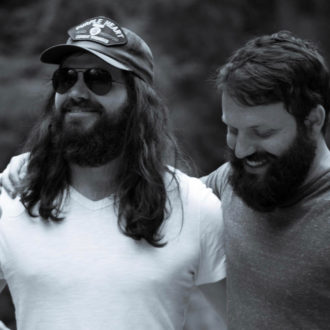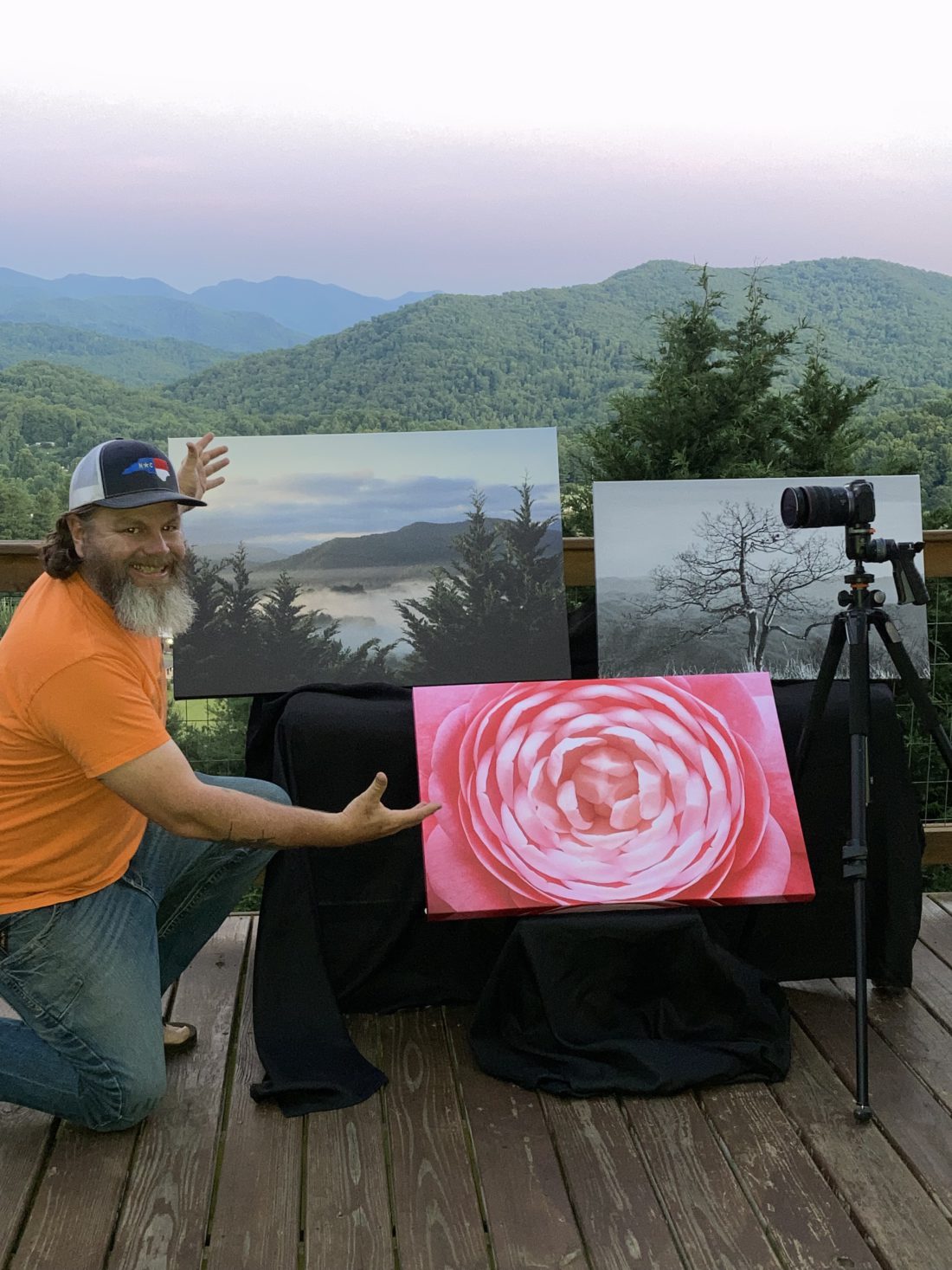Franklin Oldham describes his transition back to civilian life as “rocky at best.”
After serving in the Army, Oldham says a sense of detachment — which he attributes to the side effects of antidepressants — meant disengaging with his two primary passions, which his father introduced him to at a young age: motorcycles and photography.
“It’s not that I felt anger or anything; I just didn’t feel anything,” he explains.
Other than taking the occasional picture at a new location while serving in Germany, Kosovo and the Tikrit region of Iraq, Oldham set his camera aside while on active duty in the early 2000s. His interest in both photography and riding drifted further away after he suffered a significant back injury that resulted in him being medically processed out of the military. Extensive rehab followed, addressing the physical and psychological traumas Oldham sustained while in the service.
“When I got out, it was 2007, and nobody knew what was going on with us. I’d go to the VA [health care center in Wilmington] and they were like, ‘Man, here, take some pills and just please don’t kill yourself,’” he says. “When I got up to Asheville [in 2018], it was a much different setup as far as what was available for treatment.”
Counselors at the Charles George VA Medical Center, which Oldham says is one of the best of its kind, offered him a range of treatments for his post-traumatic stress disorder. Of all the therapies he explored, Oldham feels that eye movement desensitization and reprocessing — a psychotherapy treatment designed to alleviate the distress associated with traumatic memories — helped him the most.
Then in 2020, Michael Lopez, a photographer friend from Maryland, visited Oldham at his new house in Burnsville. The two went fly-fishing in one of Oldham’s favorite secluded spots. While Lopez was casting away, Oldham picked up his friend’s camera from the riverbank and started taking photos. Posted online, the images soon caught the attention of the Explore Burnsville tourism group, which asked to use the shots and relit Oldham’s interest.
“Signs come in many forms, so right after that, I dropped a bunch of money and bought some very, very good equipment,” Oldham says. “Now I’m back into it.”
While landscape photography is his passion, Oldham has recently been branching out into portraits. He’s also resumed riding motorcycles and is exploring ways to combine his two loves, possibly in the form of videos taken while traversing the Blue Ridge Parkway. Getting back to these outlets has helped Oldham feel more connected to society, as has the socialization that comes with sharing his work.
“Four or five years ago, you would’ve never caught me going to an art festival, putting up a tent and putting up 30-40 pictures and talking to people,” he says. “Just having that experience of being in a social scene, being around strangers and large groups, is a monumental step for somebody with a good amount of combat PTSD.”
Oldham is fortunately far from alone among area veterans who’ve sought healing through the arts. And in line with his observation regarding the many different therapeutic approaches for service members, there are plentiful creative pursuits by which such gains can occur.
Tempo setter
Like Oldham, Kevin Rumley wasn’t able to practice his art much while on active duty. Nevertheless, the northern Virginia native carried a pair of drumsticks with him through his Marine Corps training and combat tours to sustain a connection with his love of percussion. But the only time he performed was at a talent show when he did an improvised solo on his canteen, Kevlar vest and hat — to raucous applause.
“I was honored to be a Marine, but I felt like a part of me had been taken away by not being able to play music,” he says.
Rumley started on drums in fifth grade and was a member of numerous bands throughout middle and high school, taking on rock, punk and other genres. Upon graduating high school in 2003, he enlisted in the Marines and in 2004 was injured by an improvised explosive device while serving on the Iraq-Syria border. He then underwent 32 surgeries over the course of 18 months at the Walter Reed National Military Medical Center in Maryland and was told he would never walk again.
In 2005, however, Rumley proved the diagnosis wrong, regaining mobility. But due to chronic physical pain, he developed an opioid and heroin addiction. Sober since 2010, Rumley’s currently the program director for the Buncombe County Veterans Treatment Court, a rigorous two-year program for veterans facing felony charges. He also resumed drumming as part of his physical therapy, slowly regaining strength in his hands and calf muscles — and more.

“Music was always the expressive outlet. It was a part of me that I was able to communicate,” Rumley says. “So much about combat trauma is that it’s this experience you can’t put words to, so I found music to be the best form of communication, be it my soul pain, my psychic pain — whatever it was.”
In addition to bonding with friends though music, Rumley notes that his return to the drum kit marked the first time he felt connected to his mother, who’d passed away when he was young. Through coming to terms with that loss, he became even closer with his brother, Matt Rumley, a fellow musician who was a constant positive presence for Kevin while he was struggling with addiction. Once Kevin found recovery, he and his brother committed to making an album together. In April, the siblings released We Learn to Forget It under the name Her Marigold.
“It’s really the experience of losing our mother and almost dying in combat, and then the kind of catharsis of healing,” Rumley says. “That entire journey — that’s what the album is, is our experience going through these traumas together.”
Out of the shadows
While Rumley and Oldham have found strength in reconnecting with long-held creative passions, many of the participants in the Brothers and Sisters Like These program have little experience with writing, especially as a means of therapy.
Launched in 2014 by Dr. Bruce Kelly, a primary care physician at the Charles George VA, and then-N.C. poet laureate Joseph Bathanti, the program sought to help veterans with unaddressed PTSD. Over the course of eight sessions in a room in the VA’s basement, Vietnam vets were given a series of writing prompts, starting with topics addressing where they came from, before easing into their experiences in the war and of returning home. Among these initial students was Ron Toler, who’s remained active as the program has grown into a nonprofit and expanded to include vets from Operation Desert Storm, the Iraq War and the Afghanistan War.
“Most of the veterans — especially Vietnam, because of attitudes of the time when they came home — never shared their stories, so their families and the people they worked with didn’t know [what they’d been through],” says Toler, who also serves as a board member.
That form of self-preservation has gradually lifted as the Brothers and Sisters Like These program has held readings at Asheville Community Theatre, Flat Rock Playhouse and multiple branches of Buncombe County Public Libraries. A podcast series was also launched in April 2020 to help sustain momentum during the COVID-19 pandemic when meeting in person became impractical. Each episode typically features two speakers and, in Toler’s words, helps veterans — himself included — “come out of the shadows.”
Further encouraging their transformation is a community that Toler notes is more interested and willing to hear these stories.
“At the first ACT reading [in 2017], we had a few hundred attendees, mostly family members, and there was a collective gasp from the crowd [after each reading],” Toler says. “One vet was a medic, and he was extremely affected by what he saw for the rest of his life, and his family was totally unaware. He stood up and read his stories, and they were sobbing. That’s the kind of response we’ve gotten.”
Among those that the program has helped is Rumley, who’s presented some of his writing at Brothers and Sisters Like These events. In contemplating his music, Oldham’s photography and the power of the written word, Rumley is fascinated by the different modalities of healing and forms of expression available to veterans.
“I’ve always struggled with words to articulate these heavier, bigger emotions. Drumming’s always been this kind of universal language, and it’s so communicative,” Rumley says. “But with Brothers and Sisters Like These, I’ve seen the tremendous healing that they’ve brought to the veteran community.”



Love, love, love this article. Our Veteran’s need to know there is hope and help available for them. Their fellow Veterans have overcome obstacles and so can they. It gives hope to the Veteran!